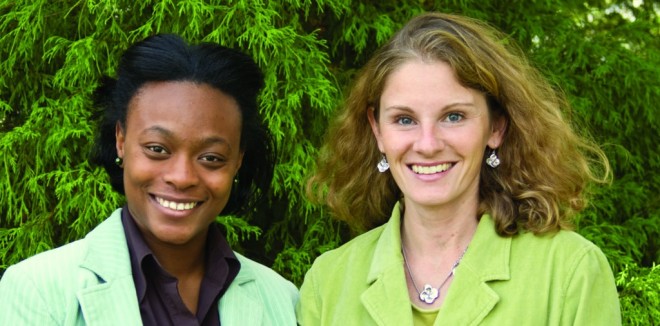
Coming to the Table (CTTT) is on the cusp of becoming a national movement. Thanks to an infusion of funding from the Kellogg Foundation and the Fetzer Institute, CTTT will expand over the next three years beyond its current occasional gathering of the descendants of slaveholders and enslaved people.
On a national basis, CTTT will be seeking to address the historical legacy of slavery and to show ways of healing the wounds remaining from that legacy.
Coming to the Table began as a pilot event on January 2006, centering around descendants who had ancestors who were linked by an enslaved/slaveholder relationship. In this first meeting, many of the participants were already known to each other, but CTTT enabled them to deepen their relationships.
“The pilot event provided important information about the value of such gatherings,” says Amy Potter Czajkowski, CTTT director. “It helped us learn how to create a place where people could be open and honest as well as feel safety and support.”
Between 2006 and 2009, CTTT was able to tap into resources on trauma awareness and resilience assembled for EMU’s STAR program and to adapt them toward addressing the society-wide trauma inflicted by the practice of slavery.
“We don’t agree with some people’s attitude that ‘it happened a long time ago; it is not relevant,’” says Czajkowski. “We have to know where our social problems come from. We have to start talking about parts of our history that many people would rather forget, because it still has an impact on all of us.”
Sha Jackson, who holds a master’s degree in journalism, joined CTTT in August (’09) to create the project’s website and to run its web-based communications for sharing life stories. “A lot of the research that we are doing in Coming to the Table deals with how historical things might have been transferred to our current lives unbeknownst to us,” she says.
Participants in CTTT share stories about family connections and events that might otherwise be lost. Betty Kilby Baldwin (formerly Fisher), a civil rights activist, told of her children’s surprise in reading her book Wit, Will & Walls (2002) and learning of the abuse their mother endured as one of the first to integrate the previously white high school in Front Royal, Virginia.
“We must first know what happened and how it inflicted harms that continue to this day. Then we can determine together what we must do to put things right,” says Czajkowski.
Kellogg contributed a two-year grant of $400,000 to CTTT. The Fetzer Institute is providing $445,000 over three years. The funding is intended to support the program’s mission to “acknowledge, understand and heal the persistent wounds of the institution of slavery and its aftermath, strive for racial reconciliation and a more unified, just and truthful society.”
Jackson’s revamped CTTT website and the expanded plans for CTTT will be officially unveiled in conjunction with Martin Luther King Jr. Day in January 2010. Watch the CJP website – www.emu.edu/cjp – for details.
